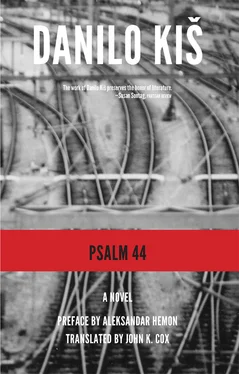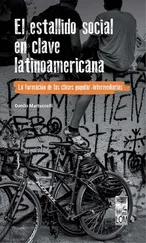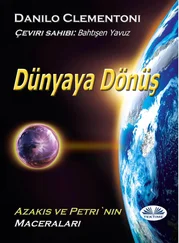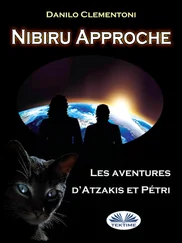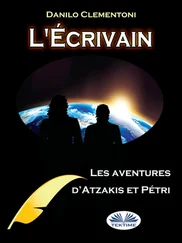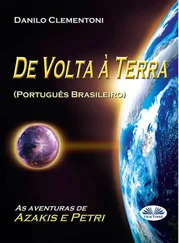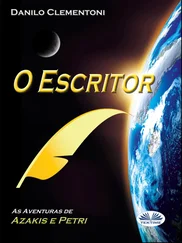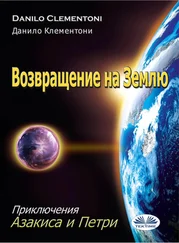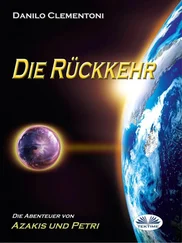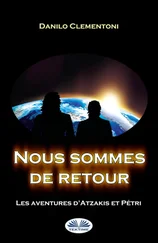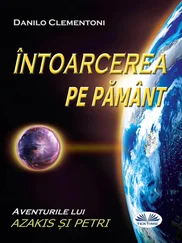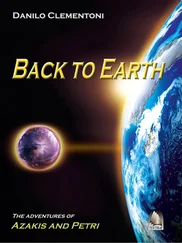Then the guide’s steps were audible once more (he had a peculiar, irregular gait), and his dreary voice too. It ripped into Marija’s consciousness along with the realization that Jakob was going to leave it to her to satisfy Jan’s curiosity. She thought: he needs to get the child out of here. The three of them should have been alone in this place. Without an audience. And without that guide. They shouldn’t have come during the tourist season. Later would have been better. At the start of winter. Or in late fall. They lived in Warsaw. It wasn’t far. Jakob worked in a hospital. She gave German lessons.
Then she heard Jakob’s voice.
“Marija,” he said. “I have a surprise for you.”
He hadn’t shut the door. Only his head poked inside. It was still just as dark in the room. Music from a radio reached them. It seemed to her that the tune was similar to “The Girl I Adore.” But it was in fact just a march. Or a waltz, maybe.
“Are you crying?” Jakob asked. “You are!”
She pulled out a handkerchief to wipe her eyes:
“It’s nothing,” she said. “It’s. . I just felt depressed all of a sudden. What did you want to tell me? Jan must be. .”
Jakob was embarrassed.
“Right,” he said. “He’s talking with the guide.”
He pushed the door open all the way and Marija caught sight of Jan and the docent. They were standing together as if in front of a curtain on a stage. The two of them. Jan and the guide. Holding one another by the hand.
When the door swung open, they bowed to her. As if they’d been practicing. Wreathed in grins. “May I introduce you, at last, to your deus ex machina ?” Jakob said. “This is Maks.”
Then the two of them, the child and the cicerone, started toward her. The man was lame in his right leg. Jakob stood to one side. With a mournful smile on his face.
Beograd — Herceg Novi, 1960
Although the great Danilo Kiš (1935–1989) also wrote poetry and drama, he is certainly best known in Central Europe, the Balkans, and the world of translation for his novels, such as The Attic (1962), Garden, Ashes (1965), and Hourglass (1972), as well as his sets of interlocking stories — themselves considered rather novelistic by some readers — such as A Tomb for Boris Davidovich (1976) and The Encyclopedia of the Dead (1983). With the publication of this novel, Psalm 44 , and the simultaneously published stories of The Lute and the Scars , most of Kiš’s fiction has now seen the light of day in English. Significant quantities of his other work have not yet been translated, and hence they have unfortunately not yet factored into the ways most of us categorize, or interact emotionally with, Kiš and his work. Our interest in Kiš’s already intriguing persona, views, and books (the elegiac, almost lapidary prose; the pointed documentary and narrative experiments; and his evocation of history as marginalization, peril, and loss) seems likely only to deepen and become more nuanced as more of his works become available. Ultimately, to access and take account of Kiš’s humor, paradoxes, disdain for party politics, sense of the “revolutionary” in art, and even his linguistic patriotism or at least his acknowledged South Slavic heritage, is to treat Kiš in a responsible and more comprehensive way. It also gives us more to appreciate than just Kiš the restless and sharp-witted postmodernist, polemicizing about his work in the 1970s, or Kiš the “good Serb,” or the “un-Serb,” whose writings were revived in the West in the 1990s as people strove to understand the madness erupting in the wars of Yugoslav succession.
Psalm 44 is, above all, a story about a young family during the Holocaust. Marija, Jakob, and little Jan are at Auschwitz or its associated camps, and most of Kiš’s narrative about the death camp is devoted to a depiction of the miserable and brutal life in its women’s section. Some of the chapters are presented as stream-of-consciousness narrative; others contain lengthy flashbacks; some passages combine the two techniques, often with abrupt returns to the central narrative set in the camp. A reader gets the impression that the characters, like the author, are trying to make sense of the unprecedented events (prejudice and discrimination and persecution in the eyes of a child in the Vojvodina, at first, moving to the mind-numbing terror of the Final Solution) and to find a mode of expressing the experiences of the Shoah in words. We also find brief historical and philosophical references to the relationship between Judaism and Christianity, and comments on the hollow enterprise that was “Nazi science,” on the nature of Holocaust commemoration in the postwar period, and on West German and American reactions to such remembrance.
The plot and chapter structure are relatively simple, even if the texture of the emotional and allusive prose is not. The characterizations are unique because of the unexpected and fitful ways the relationships and personalities are revealed to us. The characters fight, often in small but significant ways, to maintain a sense of human dignity.
Kiš had good reasons for writing about the Holocaust, and an unenviably close vantage point for doing so. He was born in the northern Yugoslav city of Subotica (Hungarian: Szabadka) on February 22, 1935. His home region, technically the Bačka but commonly referred to by the more expansive designation of the Vojvodina, had been part of medieval Hungary before being captured by the Ottomans in early modern times; it then became part of the Habsburg Empire for well over two hundred years before World War I; after the collapse of Austria-Hungary in the Great War, this multi-ethnic, multi-confessional region, which is home to Serbs and other South Slav groups as well as Hungarians, Slovaks, Ruthenians, Germans, Roma, Jews, and others, was included in the new country of Yugoslavia. Kiš’s mother, Milica Dragićević, was an Orthodox Christian from Montenegro, and he spent the immediate postwar years in that Yugoslav republic, following his repatriation from Hungary. Kiš’s father, Eduard, was a Hungarian Jew. A railroad inspector with a difficult and in some ways troubled personality, Kiš’s father also had something of the visionary and philosopher in him; both his obscured personality and his tragic fate dominate the affective world of many of Kiš’s works. The family tried, with mixed results, to escape the rising tide of anti-Semitism on both sides of the shifting Hungarian-Yugoslav border in the late 1930s and early 1940s. When the war finally ended in 1945, Kiš, his mother, and his sister Danica were leading a deliberately low-key but physically and emotionally very difficult life in rural southern Hungary; his father had been rounded up for forced labor and later was deported and then killed by the Nazis. The war years, the Holocaust years, the years of exposure and hatred and invidious otherness, are famously portrayed in Kiš’s magisterial novel Hourglass , but they are also an indispensable constituent element of his poetry, the untranslated short stories, and in his drama Night and Fog . 1
This novel, then, is obviously one that was very important to Kiš peronally. But it was an early novel, written in 1960 and first published in 1962, paired with The Attic , which he had started in 1959 but also completed in 1960. As a work of relative youth, written when the author was in his mid-twenties, the book exhibits certain lapses or excesses, infelicities or imbalances, the correction of which gives us, in his later works, insight into Kiš’s artistic and intellectual evolution. In his interviews, Kiš himself would occasionally wax wry or wistful about the novel, revealing a guarded or even critical attitude toward Psalm 44 . Kiš based the novel on a true story reported in the newspapers at the time, and he wrote it as part of a competition held by a Jewish cultural organization in Belgrade. He felt, though, that the novel made its points too directly, without enough lyricism 2or “ironic detachment.” 3But he believed that the book addressed a need in postwar Yugoslav literature, with its “latent resistance to Jewish subject matter” 4and, one supposes, its Manichean depictions of the war aimed at mobilizing and militarizing Yugoslav society. Kiš also saw the book, and his other Holocaust writings, as the first bookend of what I call his great project of convergence — his unmasking of the twin “totalitarian” leviathans (or ideological dictatorships) of the twentieth century, Nazism and Soviet communism.
Читать дальше
